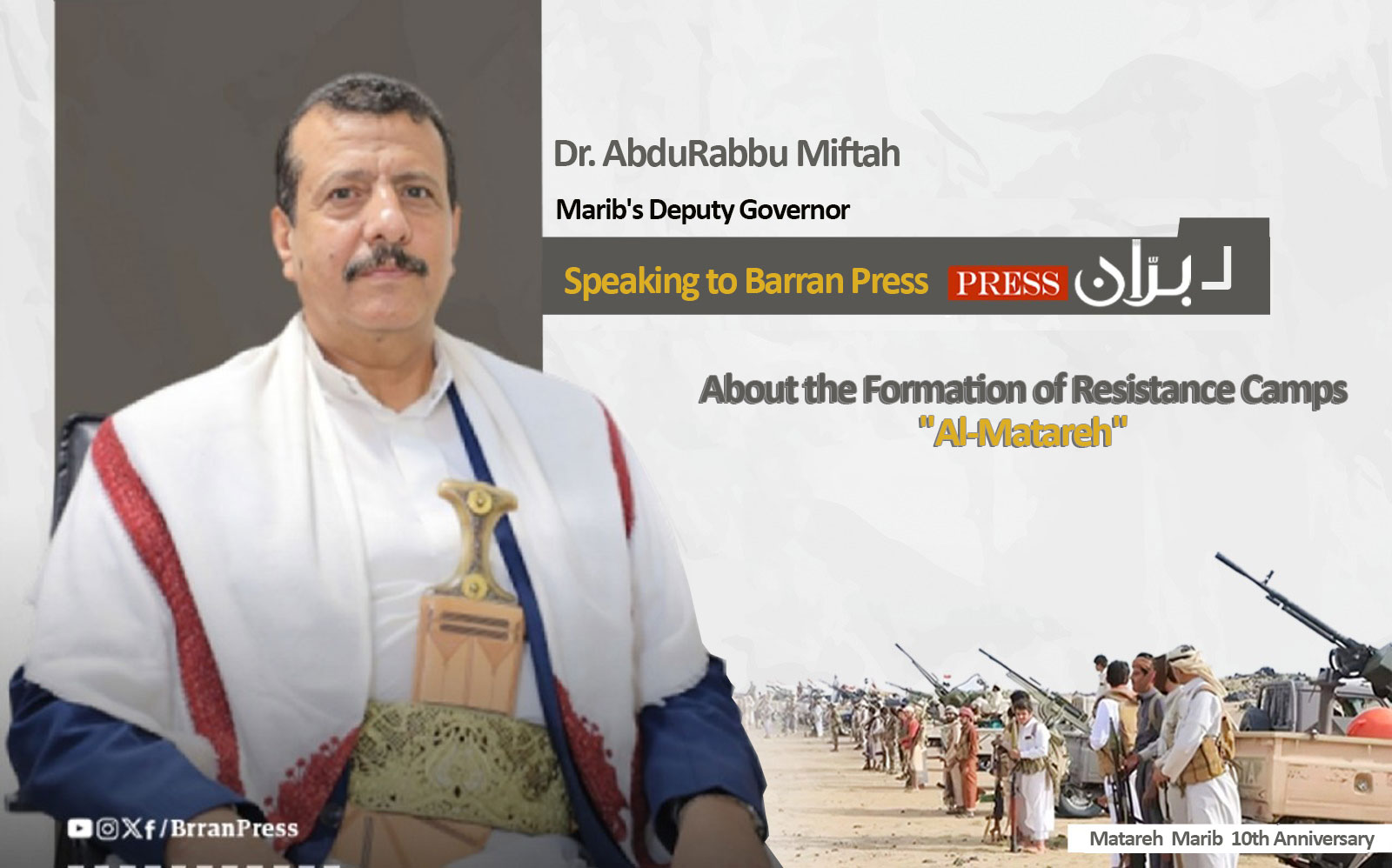


Barran Press
In an exclusive interview with "Barran Press," Marib's Deputy Governor, Dr. AbduRabbu Miftah, described the formation of Al-Matareh (resistance camps ) in the region as a revolutionary stand against the Houthi militia's attempts to undermine the state.
Miftah emphasized that Al-Matareh represented a unified response from the people of Marib and the broader Yemeni population to prevent the Houthis from seizing control of the province and its state institutions. "The people rallied together to stop the militia’s advance and safeguard our resources," he stated.
He noted that the initial confrontations took place in areas like "Nakhla," where the local population united to form multiple resistance camps "Matareh", which became the "solid rock" against Houthi aggression. "Everyone from Marib participated in these efforts to confront the invasion," he added.
Miftah, who has witnessed these events firsthand, explained that the camps were established to protect state institutions. He highlighted the subsequent organization of the National Army, which began to recruit and train fighters, enhancing its readiness to face the Houthi threat.
During this critical period, he acknowledged the support from the Arab coalition, led by Saudi Arabia and the UAE. "Their contributions were invaluable, as they stood alongside us in this battle," he said, reflecting on the cooperation that saw Yemeni and coalition forces fighting together against the Houthis.
Miftah recalled the intensity of the battles, particularly around the city of Marib, where they managed to maintain essential services like water and electricity amidst heavy bombardment. He pointed out that the Houthis had seized advanced weaponry from military camps, which posed a significant challenge to the nascent resistance.
He also revealed attempts by various groups to undermine Al-Matareh, but these efforts ultimately failed against the resolve of the people of Marib. "We faced numerous pressures, but the spirit of resistance prevailed," he asserted.
Reflecting on the broader implications of the Houthi threat, Miftah stated, "The Iranian-backed Houthi project seeks to destabilize not just Yemen, but the entire Arabian Peninsula." He emphasized the urgent need for continued vigilance against this expansionist agenda.
As he concluded, Miftah expressed hope that future revolutions would emerge from the spirit of the September 26 and October 14 revolutions, driven by the resilience demonstrated at the resistance camps. "The people of Yemen will not accept the continuation of this project," he declared.
Since September 18, 2014, local tribes in Marib have established armed camps, known as "Matarah," to confront the escalating Houthi assaults aimed at seizing the province. This response followed the Houthis' takeover of the city of Amran and their advance towards the capital, Sana'a.